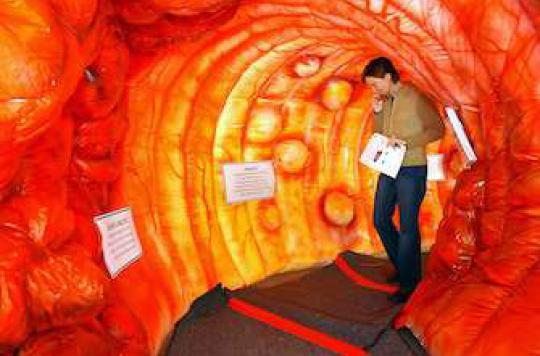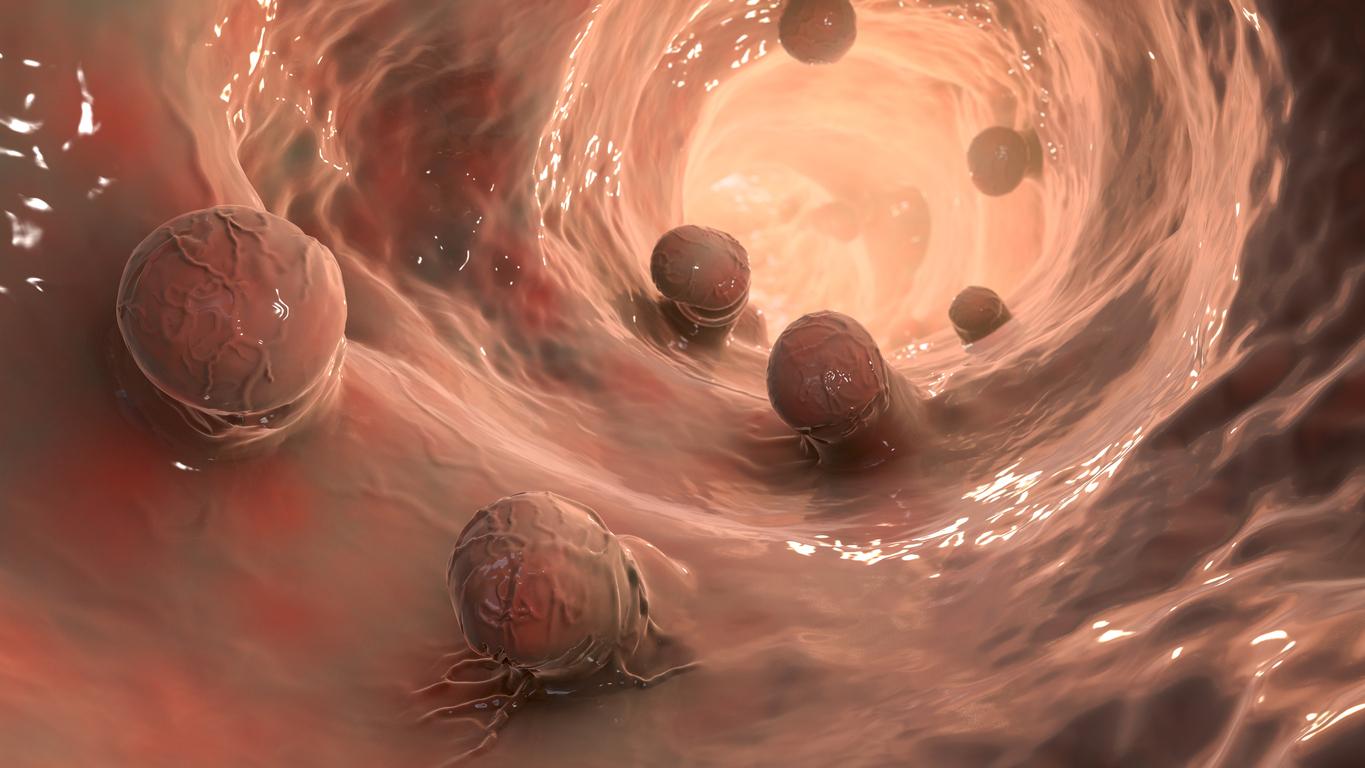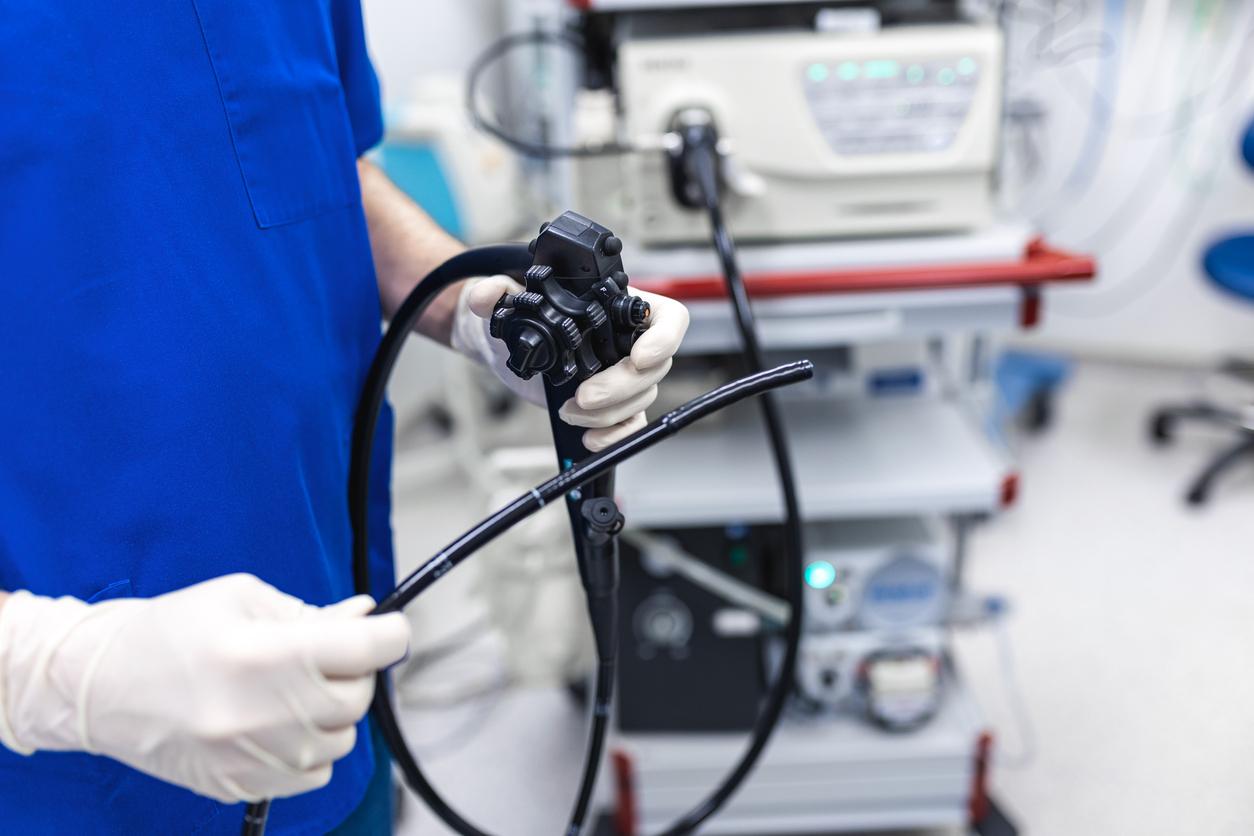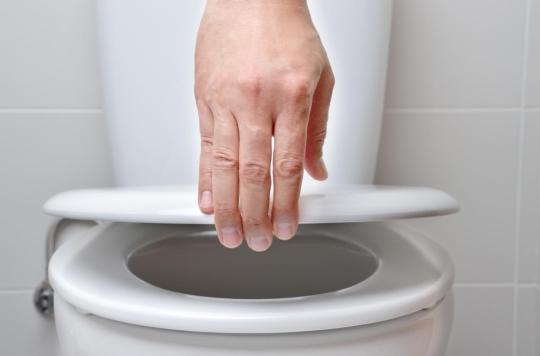Thanks to organized screening for colorectal cancer, more benign tumors are detected. Patients are better taken care of and treatment is started quickly.

Organized colorectal cancer screening works! A study, presented at the congress of the European Society for Medical Oncology (ESMO), delivers the encouraging results of the Hemoccult test since 2003. Carried out in people over 50, it detects the presence of abnormal blood in the stool. Performed routinely every two years, it can detect more adenomas, benign tumors that increase the risk of cancer.
89% more adenomas detected
A team from the National Institute of Health and Medical Research (INSERM), based in Dijon (Côte-d’Or), included more than 8,000 patients from the department, aged 50 to 74, including screening revealed a first adenoma, between 1997 and 2008.
Before the introduction of organized screening, an average of 136 high-risk adenomas per 100,000 people was detected. After its inception, doctors identified 89% more. Non-advanced adenomas have increased by 68% thanks to this screening campaign.
These results plead in favor of massive participation in organized screening: “It is very important that the public follow the recommendations and participate in colorectal cancer screening campaigns”, underlines Dr Vanessa Cottet, principal researcher. Indeed, rapid screening allows more appropriate treatment, but also faster, with a better prognosis. Because, if detected early enough, colorectal cancer can be cured in 9 out of 10 cases.
The interest of the immunological test
The adenoma detection rate then stabilized between 2005 and 2007, the team notes. However, it could improve, thanks to the upcoming introduction of simpler and more precise immunological tests. “In view of the superior performance of immunoassays, it can be assumed that organized screening using such tests would lead to an increased reduction in deaths from colorectal cancer, and possibly a reduction in the incidence of colorectal cancer,” anticipates Dr. Cottet.
Colonoscopy also delivers good results: out of 1,179 patients followed at the University Hospital Pontchaillou in Rennes (Ille-et-Vilaine), 889 underwent an examination of this type. It detected 35 cancers and 219 adenomas. However, it is better to focus on the faecal test to carry out an initial “triage” between patients who need a colonoscopy and those for whom it is unnecessary. “We believe that the population can benefit from the Hemoccult test or the immunological test, in order to select the best candidates for colonoscopy,” concludes Dr Sylvain Manfredi, who led the study.
.














